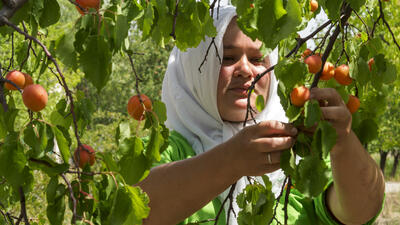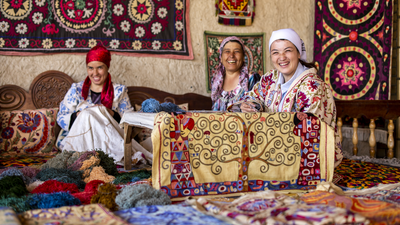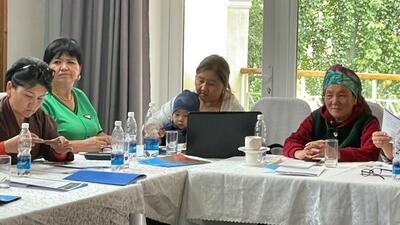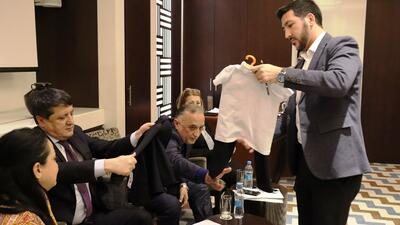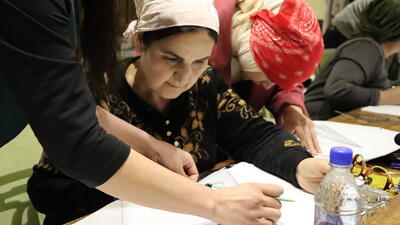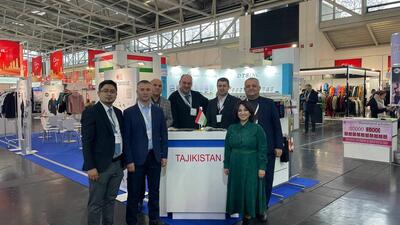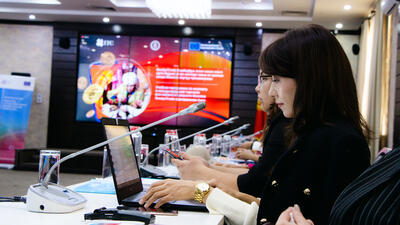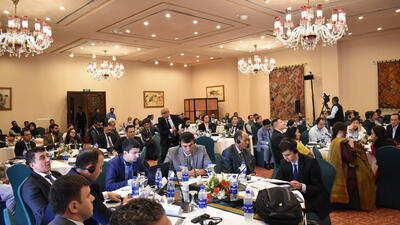ITC’s assistance ‘indispensable’ in Tajikistan’s WTO accession
On 2 March 2013, Tajikistan became the 159th member of the World Trade Organization (WTO), following more than 11 years of negotiations. WTO membership is a crucial step towards accelerating the Central Asian country’s economic growth and increasing the prosperity of its 5 million people. WTO accession was one of the government’s top political and economic priorities, aiming to improve overall economic, trade and business conditions, boost the country’s external image and strengthen its economic competitiveness.
Funded by Switzerland’s Ministry of Economic Affairs (SECO), ITC provided supported Tajikistan’s integration into the multilateral trading system. ITC focused on bringing the private sector actively into the WTO accession process and, following accession, to assist small and medium-sized enterprises (SMEs) to exploit the new market opportunities offered by WTO membership. At the same time, ITC worked with the government to identify sectors with high export potential and to develop export strategies.
‘ITC’s technical expertise and assistance were indispensable during the final stage of accession. We appreciate their strong commitment and exceptional effort, without which our objectives would have been difficult to achieve,’ said Deputy Minister of Economic Development and Trade Saidrahmon Nazriev.
WTO membership gives countries most-favoured-nation status in other WTO member countries, which ensures their exporters will be protected from discrimination. It also provides predictability of market access, and signals to investors that a country has transparent rules and regulations related to the business environment. ‘The first signs of success are already there; we operate some joint ventures that export products to European countries,’ Naziev said.
Tajikistan is counting on assistance from ITC to make most of its membership, he added. ‘Our goal is to increase our export potential and render our economy more competitive,’ he said. ‘We are developing a post-accession plan, and we would like ITC to cooperate with us in adapting our economy to produce more competitive products to sell in external markets.’
An essential part of the accession process was helping businesses overcome the fear of WTO membership, said Jean-Sébastien Roure, Senior Officer, Business and Trade Policy, ITC, who managed the ITC project in Tajikistan. Their main concern was that the private sector, particularly SMEs, did not have the strength to face greater competition in the domestic market, he said. To facilitate understanding and debate, part of ITC’s role was to explain the complex policy issues at the heart of the negotiations in practical business terms.
“The major success of the ITC programme is that it has enabled Tajikistan to conclude its WTO accession and to ensure there would be confidence by all stakeholders in the accession,” Roure explained.
Based on ITC’s experience in assisting five other countries in joining the WTO over the last five years, ITC’s strategy centered around three pillars: to increase the commitment of the government to devise the laws, regulations and enforcement framework necessary for WTO accession; to increase the support of the private sector for the country’s strategy on WTO accession; and to ensure that through effective public-private dialogue the genuine concerns of the private sector were fed into the government’s position in the negotiating process.
Through a series of workshops, ITC facilitated a dialogue between the business community and government negotiators, ensuring that the interests of SMEs were understood and taken into account during the accession process.
However, increased market access alone does not lead to increased exports. A country also needs to have a competitive export sector. ITC has been assisting Tajikistan since 2002, running numerous trade promotion programmes in the fruit and vegetable and textiles and clothing sectors. These programmes, also funded by SECO, have contributed to the sustainable expansion and diversification of SME exports by increasing the competitiveness of enterprises through training and coaching. The country’s quality management infrastructure has also been improved and a network of local business advisers have been trained.
ITC’s partnership with the government in targeting the agro-processing and textiles sectors has resulted in increased exports. In 2012, Tajikistan exported more than 120,000 tons of dried fruit to Russia, other countries in the region and, for the first time, to European Union countries.
‘These are the direct results of ITC’s programmes,’ Naziev said. ITC is also working with the government to develop the country’s textile and clothing sector to produce higher quality garments, made with natural fabric for both local consumption and export. With the assistance of ITC, the only agency active in this area, the sector’s production capacity improved by 28% in 2012; exports increased by 2.7%, Naziev said. Developing the textile industry resulted in more job opportunities for women, who represent 70% of employees, and was a factor in reducing poverty rates in the country, he added.
According to an independent evaluation of ITC’s trade promotion projects in Tajikistan, participating SMEs have increased their exports by 367%. ‘The participating enterprises obtained practical assistance and the capabilities of business support providers increased substantially,’ the evaluation reported.
But there is much work ahead, particularly in the textiles sector where the goal is for the country to process more of its cotton. ‘Five years ago we had only 2% of the total cotton fibre production processed. We have already achieved a level of 10%. With ITC’s help we have developed a strategy to develop the textile and clothing industry so that the ratio of processed cotton reaches 30% to 40%,’ he said.




